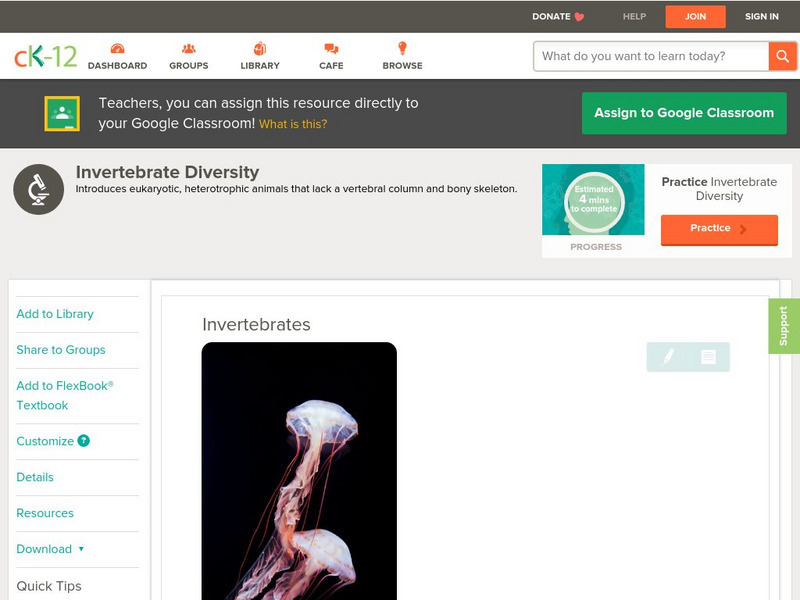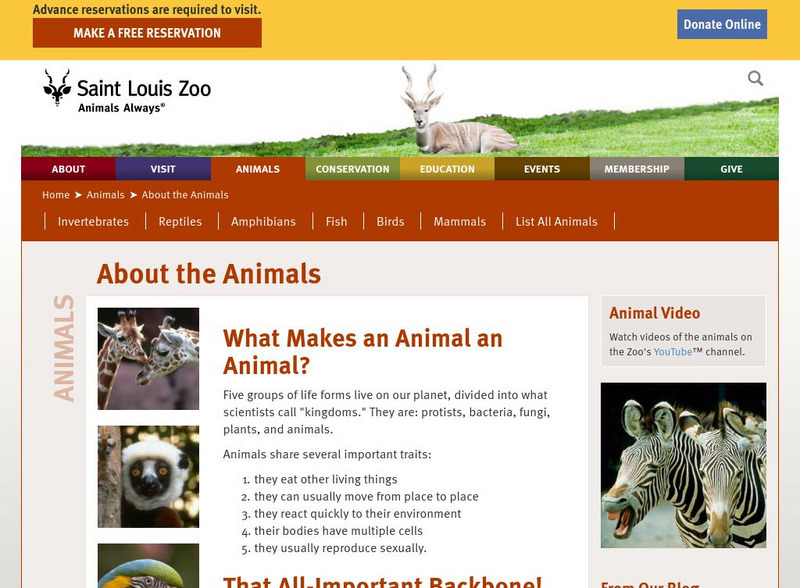Curated OER
Collecting Fossils
In this fossils worksheet, students will read about the hobby of fossil collecting and the tools needed for collecting fossils. Students will complete 3 short answer questions based on their reading.
Curated OER
Bones and Muscles
Third graders are introduced to bones as the body's means of support and protection. They research bone facts and conduct an experiment with chicken bones. They identify and observe involuntary muscles at work.
Curated OER
Introduction to Paleontology Lab
Students engage in a lab which introduces them to fossils and paleontology. They examine eleven numbered boxes containing fossils which are related to the questions on this lab then answer questions on a lab sheet imbedded in this plan.
Curated OER
Ocean Market
Students research how: The ocean is the source of many materials, from ores mined from its depths to relaxing mineral salts for a bath. Exquisite mother-of-pearl inlay, decorative shells, and pearl jewelry are found in gift shops...
Curated OER
Water,It's Special
Students describe the three forms of water. Students list reasons why water is necessary. Students access the Internet to complete Prediction lab report worksheets and FCAT-Style Questions worksheets.
Curated OER
Tucson Children's Museum Dino Crossword
In this crossword puzzle, students complete a crossword puzzle related to dinosaurs, the era in which dinosaurs lived, and about other animals that lived during that time period.
Curated OER
Oddball Out: Animals
In this problem solving worksheet, learners analyze a row of pictures
of various animals to determine which creature is different from
the others pictured.
Curated OER
Pheed the World: Edible Phyla
Students discuss the contributions of different organisms to our world. In this biology lesson, students research countries with limited food supply. They create an improvement plan for a fictitious country assigned to them.
ArtsNow
Arts Now Learning: Dance With Vertebrates and Invertebrates [Pdf]
In this instructional activity, 5th graders use movement and dance composition to aid in the understanding of vertebrates and invertebrates.
CK-12 Foundation
Ck 12: Life Science: Invertebrates
[Free Registration/Login may be required to access all resource tools.] Animals are also often identified as being either invertebrates or vertebrates. These are terms based on the skeletons of the animals. Vertebrates have a backbone...
BiologyWise
Biology Wise: Vertebrates and Invertebrates
The characteristics of vertebrates and invertebrates are described here. Includes a list of examples for each group and a chart highlighting their differences.
Other
Denver Museum of Nature and Science: Follow a Fossil
Students examine paleontology, the study of ancient life on Earth. Some topics explored are vertebrates, invertebrates, and plants.
Alabama Learning Exchange
Alex: Vertebrates or Invertebrates
During this lesson, students navigate the Internet to discover facts about vertebrates and invertebrates. They use the facts they learn to participate in several class activities.
ClassFlow
Class Flow: Vertebrates and Invertebrates
[Free Registration/Login Required] Using this lesson the students will review the 2 groups of animals - vertebrates and invertebrates. They will be actively involved in classifying animals. An Activote assessment is also included.
ClassFlow
Class Flow: Classifying Invertebrates
[Free Registration/Login Required] This is a lesson on classifying invertebrates based on their observable features. It focuses on the three types of worms: flatworm, roundworm, and segmented worm. The lesson contains 3 videos as well as...
NOAA
Noaa: Photo Library: Welcome to "The Coral Kingdom"
This appealing site contains many wonderful photos of vertebrates, invertebrates, and corals found in the Caribbean Sea, Florida Reef, Pacific Reefs, and Red Sea Reefs.
Globio
Glossopedia: Animals
The animal kingdom and its classification are explained and broken down into vertebrates and invertebrates in this resource. "Best-of" the animal kingdom list given - fastest, smallest, largest, strongest and more.
Georgia Department of Education
Ga Virtual Learning: Ap Biology: Animals
This unit focuses on the unique structure and function of both invertebrate and vertebrate animals. Students review their understanding of animal diversity, and take a closer look at the various organ systems found in the animal kingdom.
Other
Science4 Us: Animals
In online and offline activities, students broaden their understanding of animals by learning to identify and classify animals into six categories: mammals, birds, fish, amphibians, reptiles, and invertebrates.
CK-12 Foundation
Ck 12: Third Grade Science: Life Sci: Animal Characteristics and Classification
[Free Registration/Login may be required to access all resource tools.] Presents an overview of the major animals groups (mammals, birds, reptiles, amphibians, fish, arthropods, vertebrates, invertebrates, those having live births and...
Yale University
Yale Peabody Museum
This home page describes what the museum has to offer. Links to the exhibits and more information is provided at the bottom of the site.
PBS
Pbs: The Shape of Life
Companion site for the 8-part PBS series, "The Shape of Life." Each section focuses on a different phylum, from porifera through chordata. This site is highly informative, with beautiful photography.
Science Education Resource Center at Carleton College
Serc: Mn Step: Water Retention No Problem With the Key Investigation
Learners go outside to a nearby pond or wet area, and collect vertebrates and invertebrates. These are identified using a classification key. Information is recorded using a digital camera and a science notebook. Students later prepare a...
Saint Louis Zoo
Saint Louis Zoo: About the Animals: What Makes an Animal an Animal?
Short introduction to animals explains the important traits that all animals share and the differences between vertebrates and invertebrates.










![Arts Now Learning: Dance With Vertebrates and Invertebrates [Pdf] Lesson Plan Arts Now Learning: Dance With Vertebrates and Invertebrates [Pdf] Lesson Plan](https://d15y2dacu3jp90.cloudfront.net/images/attachment_defaults/resource/large/FPO-knovation.png)








